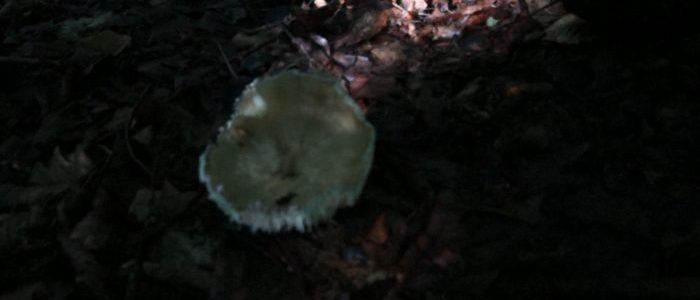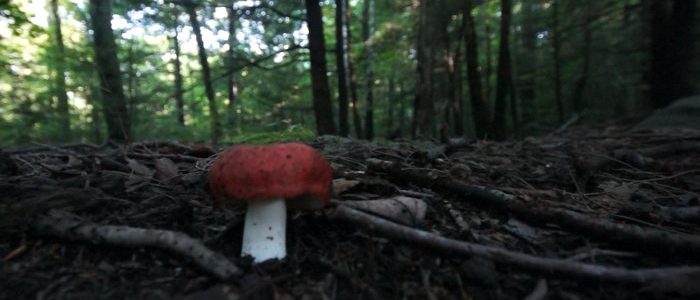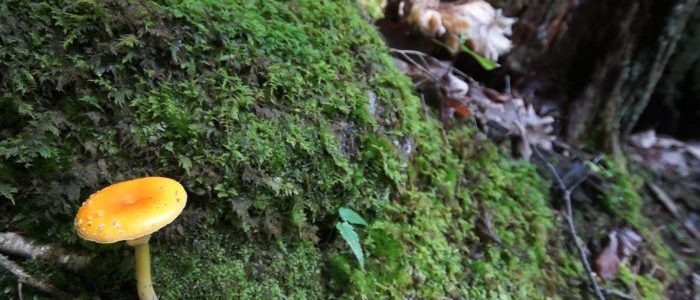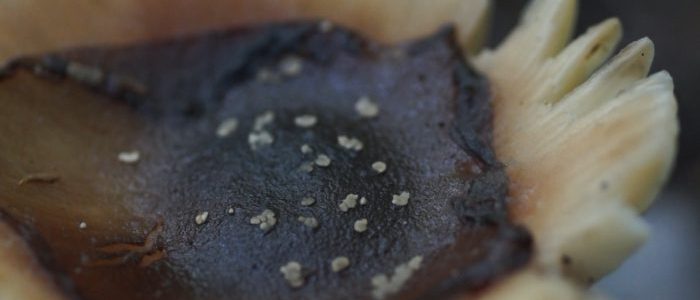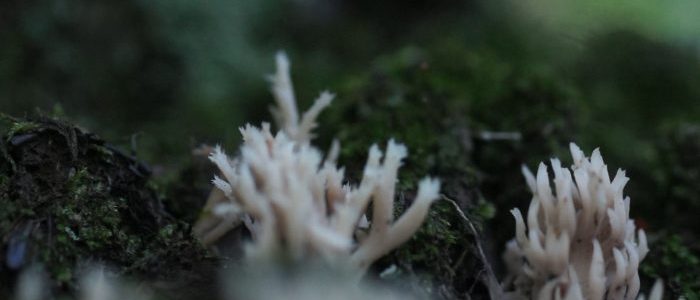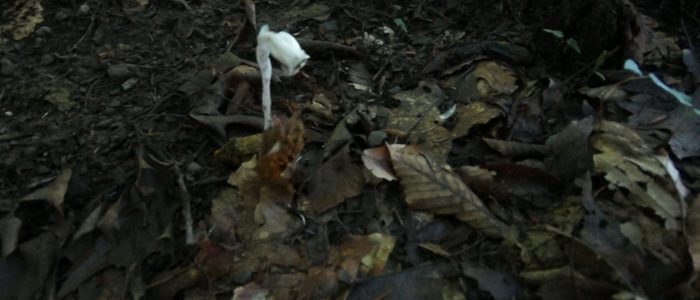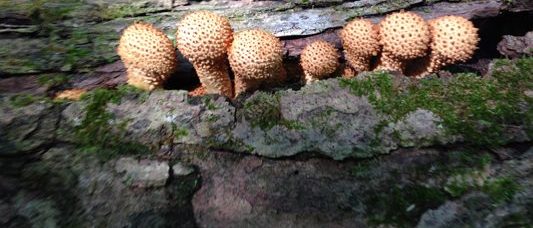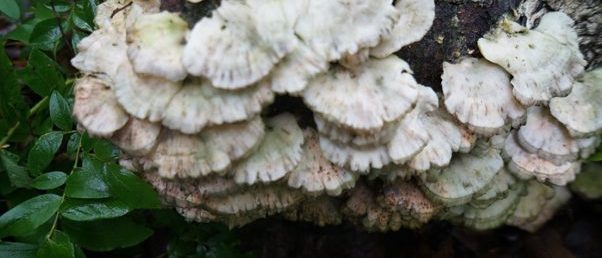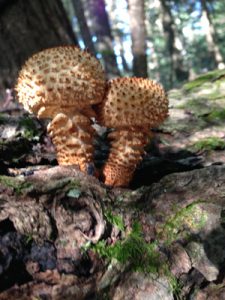 |
Honey Mushroom: Armillaria Gallica Identification: Cap tan to golden yellow; prominent ring on stem; white spore print; black “shoestring” cords (rhizomorphs) that transport food to growing hyphae All Armillaria are edible |
 |
Emetic Russula: Stropharia rugusoannulata —Russula emetica stored on branches of black spruce by squirrels. |
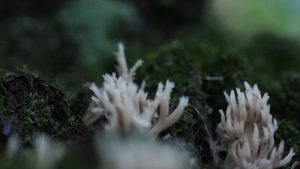 |
Another cool fungus I spotted is the Crown-tipped Coral Fungus growing on the forest floor. It’s scientific name is Clavicorona pyxidata. This was new one for me and I found it growing on the forest floor in a grove of old growth red pine and spruce trees. |
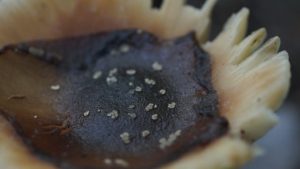 |
|
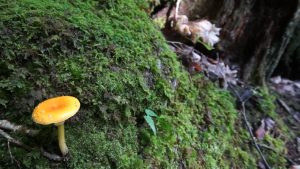 |
Fly Agaric : Amanita muscaria
Identification: Cap yellow to orange with white scales that are remnants of the universal veil; white gills free from stalk; white veil; an amanita mushroom, beautiful, but hallucinogenic and poisonous.
|
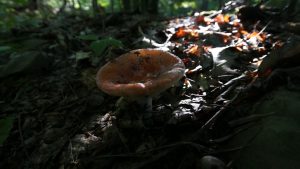 |
Milky Caps Lactarius volemus Identification: Cap rounded, center often depressed; all members of this group contain a latex that is exuded when the gills are cut Season of fruiting: Summer-fall Ecosystem function: Mycorrhizal with conifer and hardwood trees Edibility: Not recommended; mushrooms with a latex that turns yellow or lilac color are poisonous |
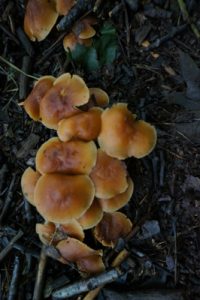 |
Psilocybe caerulipes – psychotropic mushroom
|
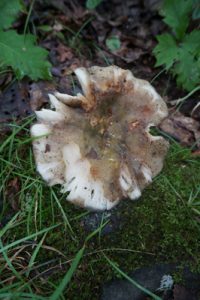 |
Lactarius mammosus |
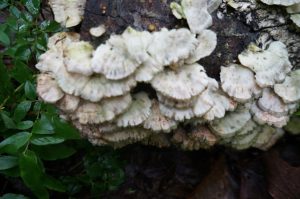 |
Oyster mushrooms in the hood : these are very edible. Eat them when they are young and soft.
|
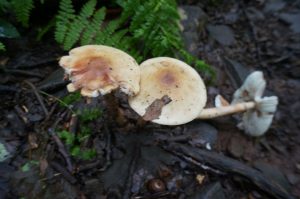 |

